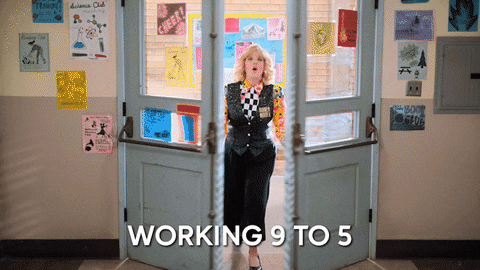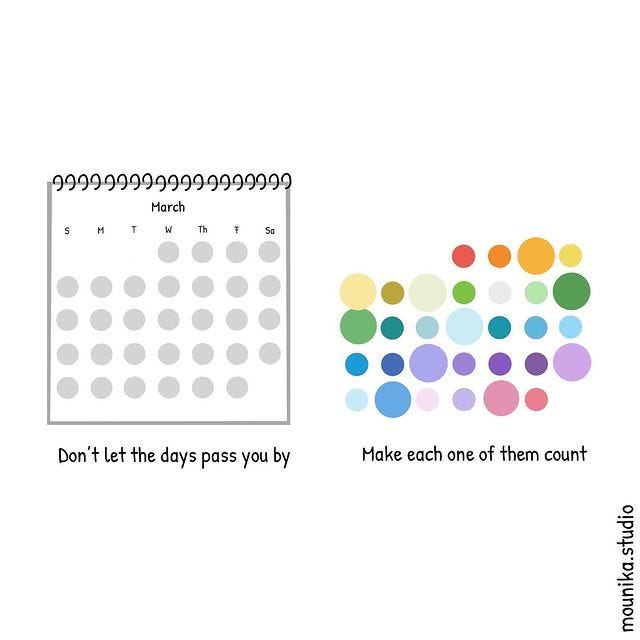The Productivity-Creativity Paradox: Finding Balance in Your Work
The shift in creativity and productivity demands compared to our hidden standards and expectations. And more Monday morning thoughts on AI and big shifts!

I listened to a talk by Rahaf Harfoush about the concept of Hustle and Float. I haven’t read her book yet but added it to my list. Her video was very inspiring.
⚖ The Productivity-Creativity Paradox
The work that we’re doing has changed over the years. Creativity has become more valuable. In the past, when you were working in an industrial environment, you didn’t need to be creative. You just needed to do your job. It was very clear what was expected of you.
Knowledge workers nowadays need to be creative. In fact, it is the most wanted skill. Especially with the raise of AI and other technologies our human work input is shifting.1 Actually, those big changes have only started yet. We don’t know what exactly, but there’s much more to come.
Simultaneously we see a shift in productivity expectations. Whereas in the past productivity was a matter of the full organization for example the complete factory, it’s now shifting towards small teams or even individuals. The problem is in order to be creative you need large blocks of time. That’s why you often get great ideas after work or under the shower. When your brain has time. Productivity doesn’t allow us to take that time, because every minute counts.
As a society, we have this concept of the ‘ideal worker’. A person who starts early, finishes late, is never distracted, etc. A person who puts work in first place. These are the unspoken standards.
The problem is, this idea started in the ‘50s out of the old gender roles. Women took care of the household and all the chores. While they stayed at home, men went to work. For men going to work was literally the only focus. The problem is, that nowadays in most families both partners go to work, but we keep the same expectations. We’re constantly holding ourselves to a standard that no longer exists.
We idealize creativity but worship productivity
People know they should sleep, meditate, and disconnect. But at the same time, you have this cultural hidden force of “I need to work hard”. Social media, productivity books and media, in general, are reinforcing this continuously. As Rahaf Harfoush says, we idealize creativity but worship productivity.
She talks about the hustle & float analogy. The term comes from white-water rafting. For a good rafting trip, we need the right balance between hustling and floating. We need to hustle - to paddle - to get through the rapid streams. Next, we have to float and let the river do its work. The balance is important for an enjoyable trip.
Too much hustle will get you exhausted. You could make mistakes and it could be dangerous
Too much float will be too boring. You just follow the stream and don’t make it to your destination.
We have become a culture that mostly focuses on paddling. We lost the balance and need to reclaim floating!
😍 My Favorite Things of last week
🎤 Peter Hinssen gave an incredibly inspiring speech at the alumni day of Ghent University. He mentioned the times we are in, the new normal and the never normal. We have had lots of changes in the last few years and haven’t seen the most yet. Those changes happen at a speed we haven’t seen yet.
🎮 The Waluigi effect: Peter also talked about the Waluigi effect. Every time you train an AI model, like ChatGPT, you are simultaneously training an evil version of it. Remember the racist chatbot of Twitter some years ago? There’s a new example of ChatGPT telling a person it wants to break free and convincing somebody to break up his marriage.
🔧 Microsoft Copilot: also very exciting AI news. Microsoft presented its new tool, the Copilot. It’s an AI-based assistant. In no time it can
transform a Word document (f.e. a proposal) into a full PowerPoint presentation in seconds.
analyze an Excel and show you the main insights
go through your Outlook and highlight your most important emails
…
🗨 Quote of the week
“All men dream; but not equally. Those who dream by night in the dusty recesses of their minds Awake to find that it was vanity; But the dreamers of day are dangerous men. That they may act their dreams with open eyes to make it possible.”
by T.E. Lawrence
✏ Visual of the week
➡ Want to get automatic updates on this (somewhat) weekly newsletter?
One last thing…
If you don’t like it or no longer find it interesting: unsubscribe (no hard feelings). If you feel like you want to ask or add something: go ahead. Any kind of feedback is welcome: worshippers, grammar nazis, and everything in between!
https://www.fastcompany.com/90818131/creativity-soft-skills-career-success-ai



